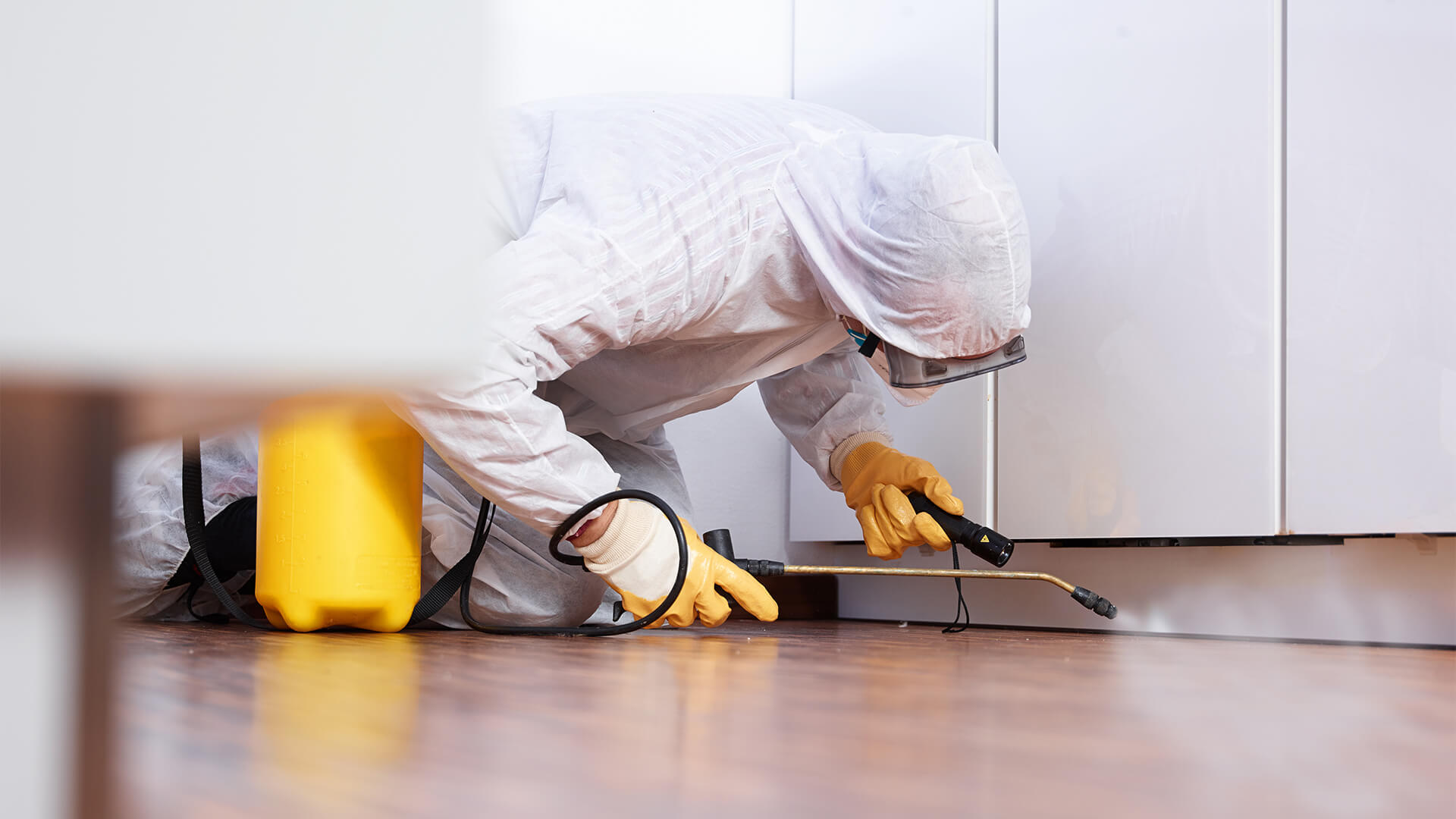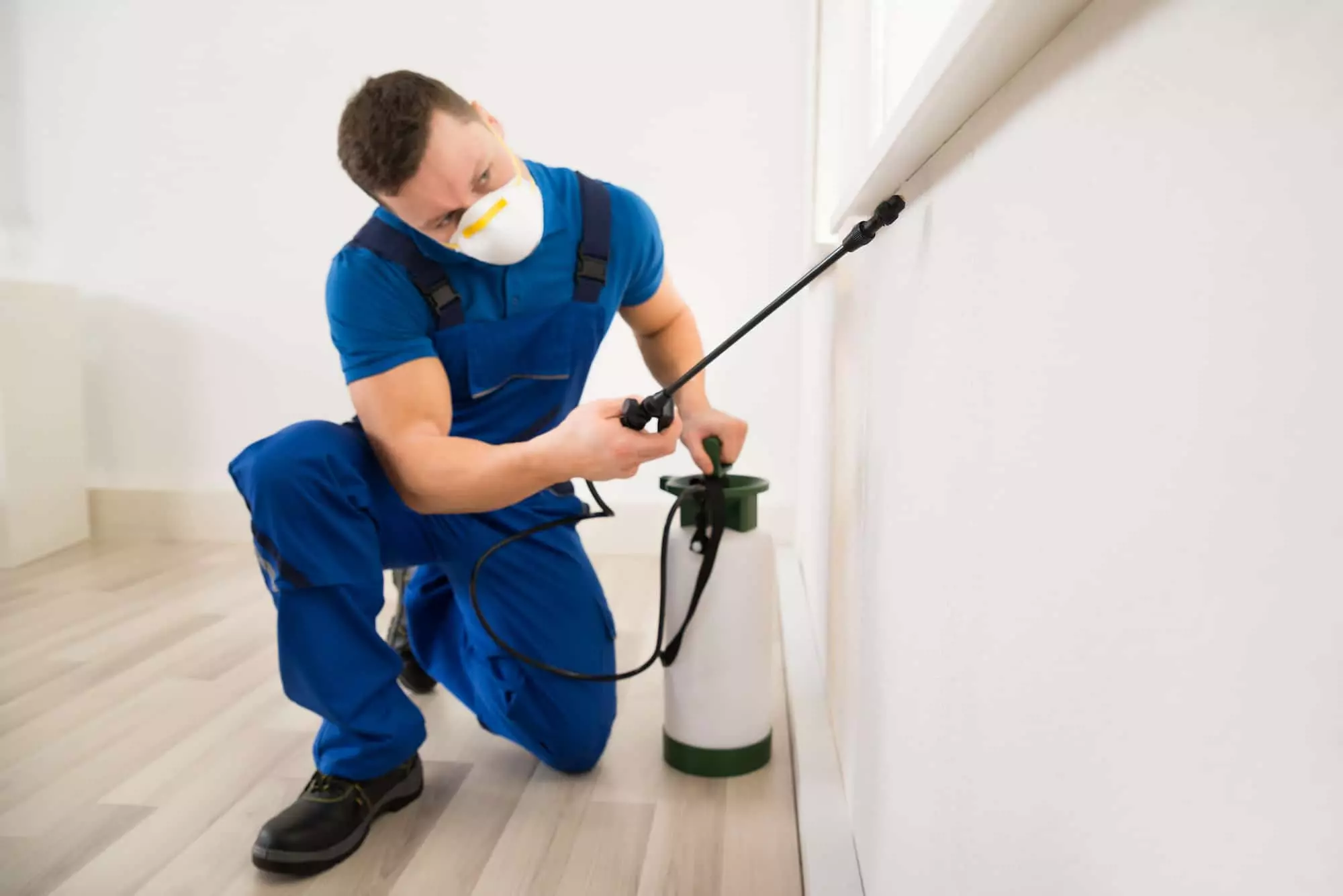Orem Pest Control Experts: Safeguarding Your Building with Proven Approaches
Orem Pest Control Experts: Safeguarding Your Building with Proven Approaches
Blog Article
An Insight Into Numerous Kinds Of Bug Control Provider Available on the market
In the world of insect control solutions, a varied array of methods exists to deal with the persistent obstacle of handling undesirable trespassers. From traditional chemical sprays to cutting-edge organic controls, the marketplace offers a spectrum of options made to fit numerous requirements and choices. As parasites proceed to adapt and advance, the requirement for efficient and lasting parasite control steps becomes significantly extremely important. Recognizing the nuances of each sort of bug control service can be not only informing yet additionally essential for maintaining an unified coexistence with the environment and the creatures that populate it.
Chemical Sprays
Chemical sprays are generally used in pest control solutions to effectively get rid of and avoid infestations. These sprays include various chemicals that target certain parasites, such as bugs, rodents, or termites. The active components in these sprays work by disrupting the bugs' nerves, causing paralysis or fatality upon get in touch with.
Specialist parasite control solutions employ skilled professionals who comprehend the appropriate application of chemical sprays to make sure maximum efficiency while reducing dangers to people, pets, and the environment. These specialists conduct extensive examinations to recognize the sort of bug invasion and identify one of the most suitable spray to deal with the problem.
Among the primary advantages of utilizing chemical sprays in parasite control is their ability to offer instant results. As soon as used, the spray starts functioning quickly, decreasing the population of insects in a prompt fashion. Furthermore, chemical sprays can supply resilient defense against future infestations when applied consistently as part of an extensive bug monitoring strategy.
Biological Control

Classical organic control includes introducing natural enemies of the bug species into the environment. These natural opponents, such as virus, parasites, or predators, help manage pest populations by preying on or contaminating them. This approach is often made use of for lasting bug monitoring and developing an all-natural balance in the environment.
On the other hand, augmentative organic control includes releasing great deals of beneficial organisms, such as aggressive bugs or nematodes, to regulate existing pest populations. This strategy is much more immediate and can be especially beneficial in agricultural settings to attend to present bug invasions.
Biological control methods are favored for their eco-friendly nature, very little impact on non-target varieties, and decreased chemical pesticide usage, making them a sustainable bug management option for numerous markets.
Catches and Lures

On the other hand, lures are compounds used to draw in pests Going Here to a details area for control functions. By comprehending the actions of the target pest, insect control professionals can efficiently make use of baits and traps to take care of insect problems effectively.
Integrated Bug Monitoring
Integrated Insect Monitoring (IPM) is a thorough technique that integrates different insect control methods to properly handle and remove bugs while minimizing ecological effect. IPM focuses on long-lasting avoidance techniques by taking into consideration the biology and habits of pests, along with the specific atmosphere in which they exist. This approach incorporates a variety of parasite control methods such as organic control, habitat control, alteration of cultural techniques, and the usage of resistant crop ranges.
One of the key principles of IPM is to prioritize non-chemical insect control approaches whenever possible. This may include employing natural predators to manage pest populations or executing physical obstacles to avoid problems. Chemical chemicals are made use of as a last hope and are used deliberately to decrease harm to non-target organisms and the surrounding ecological community.
Heat Therapy
As a corresponding method to Integrated Pest Management strategies, warmth therapy is a targeted technique that harnesses the power of high temperature levels to get rid of insects effectively and efficiently. This method is particularly useful in getting rid of bed pests, termites, and various other bugs that might be concealing in hard-to-reach locations within a framework. By raising the ambient temperature level to degrees that are dangerous to the parasites however secure for the structure, heat therapy can penetrate fractures, holes, and furnishings where typical pesticides could not get to.
Throughout a heat treatment session, customized devices is used to warm the plagued location to temperature levels in between 120 ° F and 140 ° F, a range recognized to eliminate bugs at all life phases. The process commonly takes several hours, making sure that the warmth permeates deep adequate to remove the entire Clicking Here pest population. Among the essential advantages of warm therapy is that it is chemical-free, making it a ecologically pleasant and secure option for bug control. Additionally, warm therapy is known for its ability to provide quick results, usually settling parasite problems in a solitary treatment session.
Final Thought

 Having dealt with the efficacy of chemical sprays in bug control services, the emphasis now changes to organic control methods as a sustainable alternative for managing bug problems. Lures and traps are necessary tools in parasite control solutions, using targeted services for certain pests. By recognizing the actions of the target parasite, pest control professionals can efficiently make use of lures and catches to take care of insect infestations efficiently.
Having dealt with the efficacy of chemical sprays in bug control services, the emphasis now changes to organic control methods as a sustainable alternative for managing bug problems. Lures and traps are necessary tools in parasite control solutions, using targeted services for certain pests. By recognizing the actions of the target parasite, pest control professionals can efficiently make use of lures and catches to take care of insect infestations efficiently.Integrated Parasite Monitoring (IPM) is a comprehensive method that incorporates numerous pest control techniques to effectively handle and get rid of parasites while decreasing ecological impact.In browse around these guys conclusion, different kinds of bug control solutions are available in the market to attend to various insect invasions.
Report this page